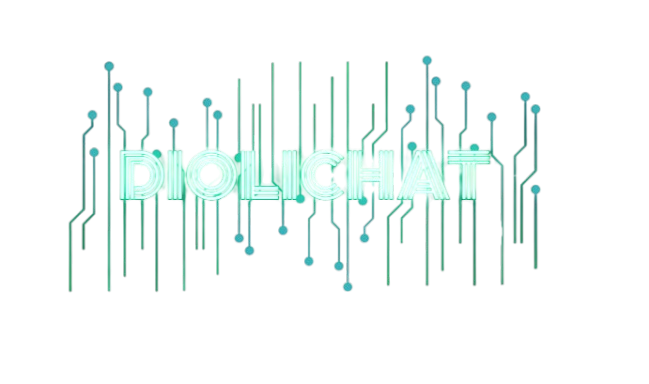In recent years, blockchain technology has emerged as one of the most transformative innovations of the digital age. Originally introduced as the underlying technology behind cryptocurrencies like Bitcoin, it has since found its way into various industries, promising to reshape the way we conduct business, manage data, and secure transactions.
As we look to the future, the potential applications of blockchain technology extend far beyond just cryptocurrencies. In this article, we’ll explore the future of blockchain technology, its evolving role in society, and the opportunities and challenges that lie ahead.
Understanding Blockchain Technology
Before diving into its future, it’s important to have a clear understanding of what blockchain technology is. At its core, blockchain is a decentralized and distributed ledger that records transactions across many computers in such a way that the registered transactions cannot be altered retroactively. This transparency, combined with its security and immutability, is what makes blockchain so appealing in a variety of sectors.
Blockchain technology enables peer-to-peer interactions without the need for intermediaries. This means that transactions can be conducted directly between parties, reducing the time and cost associated with traditional intermediaries like banks and payment processors. The technology is built on the principles of decentralization, transparency, and security, which have made it a game-changer for various industries.
The Rise of Cryptocurrencies
When most people think of blockchain, they immediately think of cryptocurrencies like Bitcoin and Ethereum. These digital currencies have experienced meteoric growth, with Bitcoin alone reaching an all-time high of over $60,000 per coin.
But what makes cryptocurrencies unique is their reliance on blockchain technology. The blockchain serves as the foundation for the security and transparency of these digital currencies, allowing for trustless transactions.
The cryptocurrency market is still in its infancy, and experts predict that it will continue to evolve and mature in the coming years. One of the most significant advancements in the world of cryptocurrency is the rise of decentralized finance (DeFi).
DeFi platforms allow users to borrow, lend, and trade assets without the need for traditional banks. These platforms leverage blockchain technology to provide decentralized financial services, disrupting the traditional banking system.
As blockchain technology becomes more widely adopted, cryptocurrencies are expected to gain more mainstream acceptance. Governments and regulatory bodies are also taking notice, and while regulations remain a gray area in many countries, the future of cryptocurrencies appears promising as countries like El Salvador and companies like Tesla continue to embrace them.
Blockchain Beyond Cryptocurrencies
While blockchain’s association with cryptocurrency is well-known, its applications extend far beyond digital currencies. Various industries are already exploring how they can harness blockchain to enhance efficiency, security, and transparency.
Supply Chain Management
One of the most promising applications of blockchain technology lies in supply chain management. By providing an immutable record of every transaction along the supply chain, blockchain can help track goods from their origin to the end consumer. This transparency not only improves efficiency but also reduces the risk of fraud and counterfeit products.
For instance, in the food industry, blockchain can be used to trace the journey of food products, ensuring that they are safe and ethically sourced. Companies like IBM and Walmart are already using blockchain to improve their supply chain operations, and it’s expected that many more industries will follow suit in the coming years.
Healthcare
Blockchain technology also holds great promise in the healthcare sector. With healthcare records being notoriously fragmented and vulnerable to cyberattacks, blockchain can provide a secure, decentralized solution for storing patient data.
By allowing patients to have control over their health records, blockchain technology can improve the sharing of medical data while maintaining privacy and security.
In addition, blockchain can streamline the management of pharmaceutical supply chains, reducing the risk of counterfeit drugs. The ability to track the provenance of medical products from the manufacturer to the consumer can help ensure the authenticity and safety of drugs.
Digital Identity and Privacy
As concerns over online privacy and identity theft grow, blockchain technology offers a promising solution. Through decentralized digital identity systems, individuals can have control over their personal information. Instead of relying on centralized databases, blockchain allows users to store and share their data securely and selectively, reducing the risk of data breaches and identity theft.
Additionally, blockchain can be used to enhance online voting systems, ensuring the integrity and transparency of elections. By providing a tamper-proof ledger of votes, blockchain can help eliminate fraud and improve public trust in democratic processes.
Intellectual Property and Copyright Protection
The entertainment and creative industries are also exploring the potential of blockchain to protect intellectual property. Through blockchain-based platforms, creators can register their work, ensuring that their intellectual property rights are protected.
This could significantly reduce piracy and unauthorized use of digital content, providing a more secure environment for artists and content creators.
In fact, blockchain technology has already begun to revolutionize the art world with the rise of non-fungible tokens (NFTs). NFTs are unique digital assets that can represent ownership of art, music, and other creative works. By using blockchain to verify ownership, artists can sell and distribute their work directly to consumers, bypassing traditional intermediaries like galleries and auction houses.
The Future of Blockchain Technology

As we look to the future of blockchain technology, several key trends are likely to shape its development:
1. Increased Adoption Across Industries
Blockchain technology is still in its early stages, but it’s rapidly gaining traction across various sectors. In the coming years, we can expect to see even greater adoption as more companies and industries recognize the benefits of decentralization, transparency, and security. From finance and healthcare to supply chain management and digital identity, blockchain is poised to revolutionize a wide range of industries.
2. Integration with Other Emerging Technologies
Blockchain technology is likely to play a critical role in the development of other emerging technologies like artificial intelligence (AI), the Internet of Things (IoT), and 5G networks. For example, AI and blockchain can work together to improve data security and decision-making processes.
Similarly, the combination of blockchain and IoT can enhance the security and efficiency of connected devices, while 5G networks can provide the infrastructure necessary to support blockchain-based applications.
3. Enhanced Regulation and Compliance
As blockchain technology becomes more widely adopted, the need for regulation will become more pressing. Governments and regulatory bodies around the world are already working to develop frameworks for regulating blockchain-based technologies and cryptocurrencies.
In the future, we can expect clearer regulations that will help foster innovation while ensuring that blockchain technologies are used responsibly and ethically.
4. Sustainability and Energy Efficiency
One of the biggest challenges facing blockchain technology is its environmental impact, particularly when it comes to energy consumption. Bitcoin mining, for example, requires vast amounts of computational power and energy. However, there is growing awareness about the need for sustainable blockchain solutions.
In the future, we may see the development of more energy-efficient consensus mechanisms, such as proof of stake, which could significantly reduce the carbon footprint of blockchain networks.
5. Blockchain in Government and Public Services
Governments are increasingly looking at how blockchain can improve the delivery of public services. From transparent budgeting and public spending to secure land registries and voting systems, blockchain has the potential to enhance governance and public trust. By providing an immutable record of government transactions, blockchain can increase transparency and reduce corruption.
Blockchain technology and Cryptocurrency
The future of blockchain technology and cryptocurrency is undoubtedly exciting. With its ability to disrupt industries, improve transparency, and enhance security, blockchain is poised to revolutionize the way we live, work, and interact with the digital world.
While challenges remain, such as regulatory uncertainty and environmental concerns, the ongoing innovation and adoption of blockchain technology suggest that its potential is only just beginning to be realized.
As blockchain continues to evolve, its integration with other emerging technologies will only expand its capabilities. From financial services to healthcare, supply chains, and beyond, blockchain technology will play a pivotal role in shaping the future of our digital economy. The future of blockchain is bright, and it’s only a matter of time before it becomes an integral part of our everyday lives.

